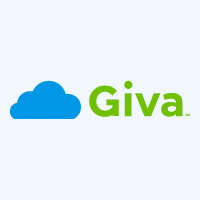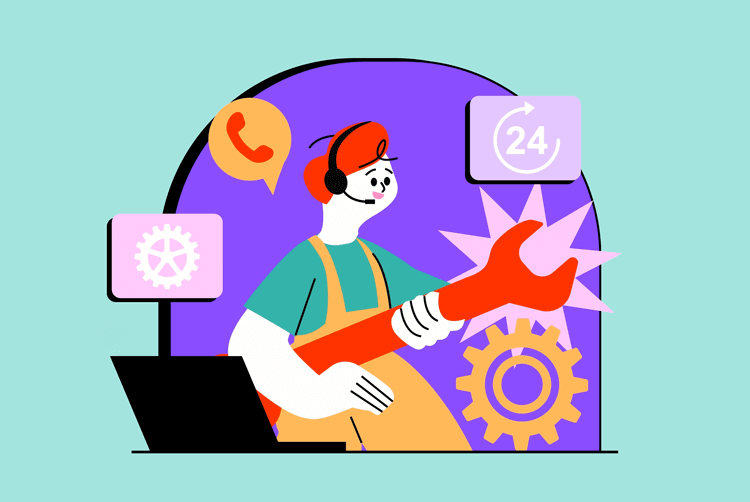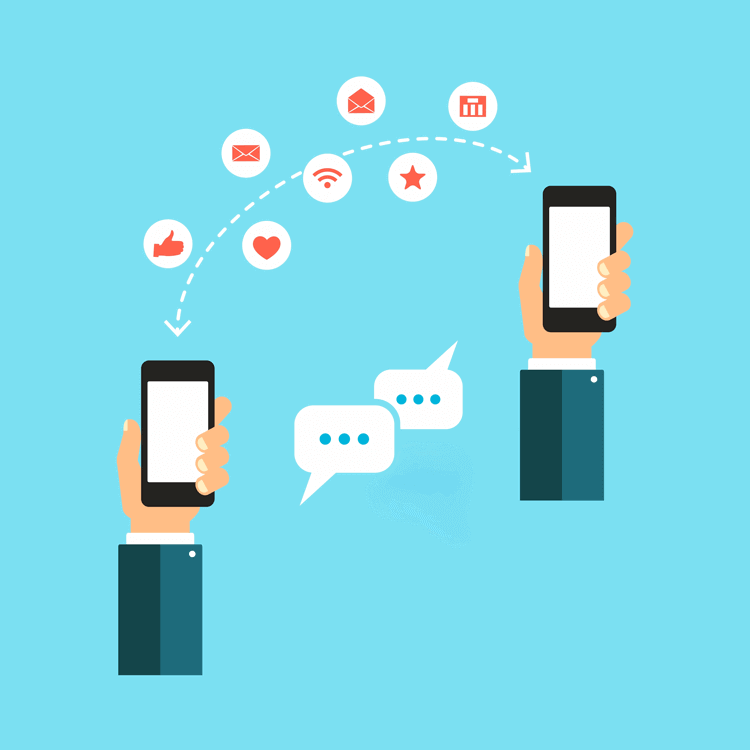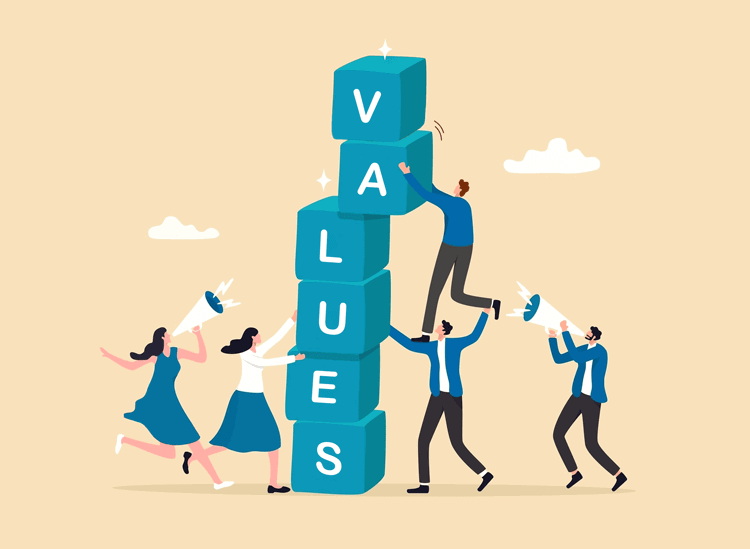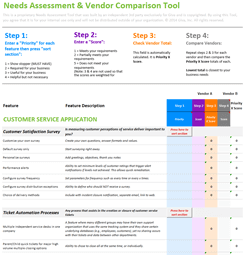23 Characteristics of Customer Service Excellence and Steps for How to Implement and Measure
Excellence in customer service has become a key differentiator for organizations striving to attract and retain customers. Delivering exceptional support and satisfaction is no longer merely a goal but a necessity for sustainable success.

In this article, we review the principles, characteristics, and practices for achieving customer service excellence within a support department. We also offer actionable steps to measure and bring excellence in a customer support environment that delights customers and drives business growth.
How to Define Customer Service Excellence
Customer service excellence refers to the delivery of exceptional support, assistance, and satisfaction to customers by a business or organization. It consists of the following:
- Consistent, high-quality service that exceeds customer expectations
- Understanding and addressing customer needs, empathizing with their concerns, and resolving issues promptly and effectively
- Continuously striving to improve service delivery
- Service that is responsive, professional, empathetic, personalized, and customer-centric
A customer service department that is able to achieve these can bring to the business:
- Enhanced customer satisfaction
- Greater customer loyalty and advocacy
- Building of long-term relationships
23 Support Characteristics That Bring Excellence in Customer Service
The following are ways organizations can establish customer service excellence within their teams:
-
Emphasize Empathy
Train agents to understand and empathize with customers' concerns and emotions.
-
Active Listening
Teach agents to listen attentively to customers and paraphrase their concerns to ensure understanding.
-
Personalization
Encourage agents to personalize communication by using customers' names and referencing past interactions.
-
Positive Language
Train agents to use positive language and avoid negative or confrontational phrases.
-
Multichannel Support
Offer support through various channels such as phone, email, live chat, and social media to cater to different preferences.
-
Quick Response Time
Strive for quick response times to inquiries and issues, aiming for minimal wait times.
-
Resolve Issues First Contact
Strive to resolve customer issues on the first contact to minimize frustration and inconvenience.
-
24/7 Support
Provide round-the-clock support to accommodate customers in different time zones and urgent situations.
-
Knowledge Base
Develop a comprehensive knowledge base for agents to quickly access information and troubleshoot problems.
-
Empowerment
Empower agents to make decisions and resolve issues without needing constant approval.
-
Feedback Mechanism
Implement a system for collecting feedback from customers to continuously improve services.
-
Customer Surveys
Conduct regular surveys to gauge customer satisfaction and identify areas for improvement.
-
Follow-up
Make sure agents follow up with customers to confirm resolution and satisfaction after resolving an issue.
-
Consistency
Maintain consistency in service quality across all interactions and channels.
-
Transparency
Be transparent about product/service limitations, downtime, and any issues that may arise.
-
Escalation Protocol
Establish clear protocols for escalating complex issues to higher levels of support.
-
Quality Assurance
Regularly monitor and assess agent performance to maintain quality standards.
-
Proactive Support
Anticipate customer needs and reach out to offer assistance before they even ask.
-
Gamification
Introduce gamification elements to keep agents motivated and engaged in providing excellent service.
-
Customer Education
Educate customers on product features and best practices to prevent common issues.
-
Cultural Sensitivity
Train agents to be culturally sensitive and respectful of customers from diverse backgrounds.
-
Community Building
Build an online customer community where participants can support each other and share experiences.
-
Customer-Centric Policies
Align company policies and procedures with customer needs and satisfaction.
How To Implement These Customer Service Excellence Characteristics
Now that we have some characteristics that bring service excellence to customer support groups, here are some practical steps as to how to effectively implement them into any organization:
-
Get Leadership Buy-In
- Emphasize to leadership the importance of customer service excellence in achieving business objectives.
- Secure resources, support, and alignment of goals to prioritize customer satisfaction and loyalty.
-
Bring Clear Communication
- Clearly communicate the vision, values, and expectations regarding customer service excellence to all employees.
- Provide regular updates and reminders to reinforce the importance of delivering exceptional service.
-
Provide Training and Development
- Invest in thorough training programs to equip support agents with the skills, knowledge, and resources required to achieve your support objectives.
- Provide continual training and growth opportunities to keep agents updated on best practices and emerging trends.
-
Implement Process Optimization
- Streamline support processes and workflows to improve efficiency and responsiveness.
- Eliminate unnecessary steps and barriers that may hinder the delivery of timely and effective assistance.
-
Integrate Technology
- Leverage technology solutions such as help desk software and automation tools to enhance service delivery.
- Implement chatbots and self-service portals to provide customers with immediate assistance and support options.
-
Continuously Monitor Metrics and Feedback
- Monitor key performance metrics such as response times, resolution rates, and customer satisfaction scores to gauge the effectiveness of service delivery.
- Along with the customer feedback obtained, also ask employees to identify areas for improvement and address any issues promptly.
-
Offer Recognition and Rewards
- Recognize and reward employees who consistently demonstrate exceptional customer service.
- Establish incentives and recognition programs to motivate employees to strive for excellence.
-
Establish Cross-Functional Collaboration
- Create processes and use technology for collaboration between support teams and other departments such as product development, sales, and marketing to ensure a unified and customer-centric approach.
- Share insights, feedback, and best practices to drive continuous improvement across the organization.
-
Adapt and Be Flexible
- Stay agile and adaptable in responding to changing customer needs, market dynamics, and industry trends.
- Continuously evaluate and refine strategies based on feedback and new opportunities.
How to Measure Customer Service for Excellence
The following is a process by which to measure your customer service performance:
-
Define Key Performance Indicators (KPIs): Identify and define KPIs that align with your customer service goals and objectives. Common KPIs include:
- Customer Satisfaction Scores (CSAT)
- Net Promoter Score (NPS)
- First Call Resolution (FCR) rate
- Average Response Time
- Customer Retention Rate
- Analyze Feedback: Analyze feedback data to identify trends, patterns, and actionable insights that can inform decision-making and improvement efforts.
- Monitor Performance Metrics: Continuously monitor performance metrics such as response times, resolution rates, and adherence to Service Level Agreements (SLAs).
- Conduct Quality Assurance Checks: Regularly review customer interactions (e.g., calls, chats, emails) to assess agent performance, adherence to policies and procedures, and opportunities for coaching and improvement.
- Benchmark Against Industry Standards: Participate in industry surveys, studies, and benchmarking initiatives to compare your performance with that of your peers and industry leaders.
Additional Resources to Help Bring More Customer Service Excellence
Finally, here are some additional helpful resources:
Service Excellence Books
- "Delivering Happiness: A Path to Profits, Passion, and Purpose" by Tony Hsieh
- "The Effortless Experience: Conquering the New Battleground for Customer Loyalty" by Matthew Dixon, Nick Toman, and Rick DeLisi
- "Exceptional Service, Exceptional Profit: The Secrets of Building a Five-Star Customer Service Organization" by Leonardo Inghilleri and Micah Solomon
- "Hug Your Haters: How to Embrace Complaints and Keep Your Customers" by Jay Baer
- "Customer Satisfaction Is Worthless, Customer Loyalty Is Priceless: How to Make Customers Love You, Keep Them Coming Back, and Tell Everyone They Know" by Jeffrey Gitomer
Training Programs for Better Customer Service
- Customer Service Excellence Certification: offered by the Customer Service Institute of America (CSIA)
- Customer Service Skills Training: provided by online learning platforms such as LinkedIn Learning, Udemy, and Coursera
- Customer Experience Management Certification: offered by the Customer Experience Professionals Association (CXPA)
Conclusion: The Value of Customer Service Excellence
Customer service excellence is not just a buzzword — it's a cornerstone for building strong relationships with customers and driving business value. By including the characteristics and implementing the strategies from above, organizations can create a support department that sets itself apart from the competition.
With a commitment to continuous improvement and a focus on meeting and exceeding customer expectations, businesses can take customer service excellence to the next level, bringing long-term growth and success.
Giva Can Help Your Team Bring That Excellence to Your Customers
Giva's Customer Service Software offering helps you keep your support organization at the top of its game with the following features:
- Customer Satisfaction Surveys / Success Center: Capture feedback on a continuous basis to measure customer pulse
- Custom or standard surveys with out-of-the-box reports ready to use
- Team Efficiency, Improvement and Productivity Reports
- Service Level Agreements: Target respond/resolve times, measure goals and deliver consistent service
- Create and reuse knowledge for quick resolutions and self-service
- AI Copilot functionality for ticket summaries and generating quick responses
Let Giva support your customer support operations! Get a demo today, or start a free 30-day trial.
